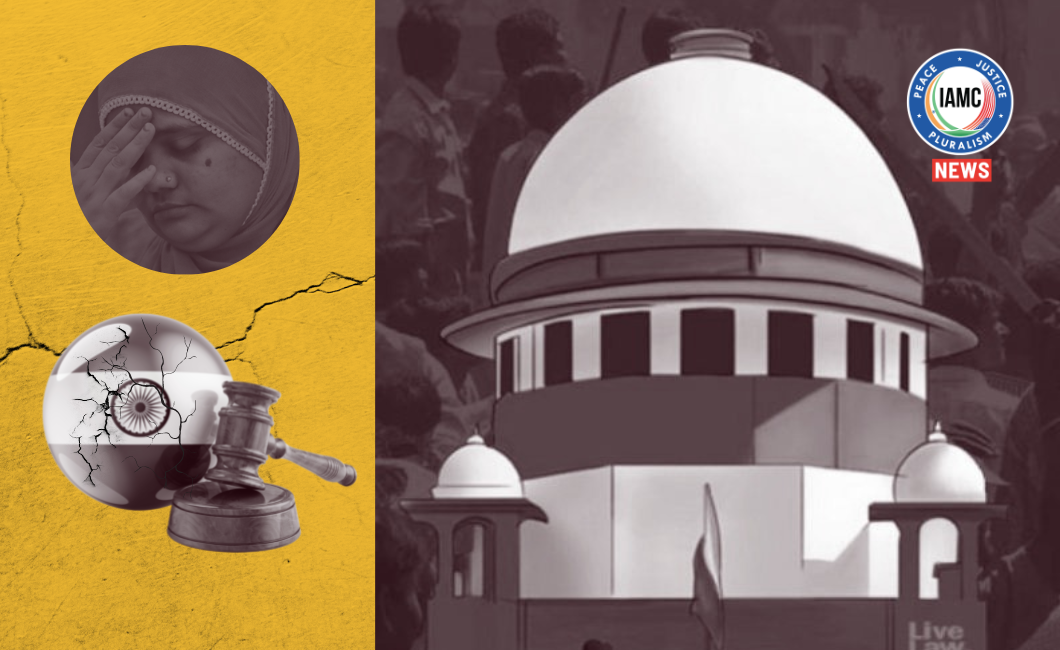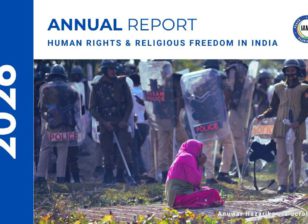Bilkis Bano Case: Supreme Court judge recuses from hearing plea against release of rapists
A Supreme Court judge has recused from hearing a petition filed by a Muslim woman, Bilkis Bano, against the shocking release of 11 Hindu extremist men convicted of gang-raping her and murdering her family members in 2002.
The case was to be heard by two judges before one of them, Justice Bela M. Trivedi, declined to hear the case, implying either conflict of interest or lack of impartiality.
The judge’s recusal from hearing a plea regarding one of India’s most high-profile Hindu supremacist violence cases is an indication of the way Hindu extremism has compromised the integrity of the highest courts.
When she was 21 years old, Bano was attacked by a Hindu mob along with 16 other family members while fleeing Hindu extremist mob violence in her Gujarat village. Bano, who was five months pregnant, was gang-raped and brutally assaulted, along with her mother and other women in her family. Bano’s three-year-old daughter was killed when a Hindu extremist smashed her on the ground. Only three members of the family survived the attack, including Bano.
The extremists, whose release was facilitated by the Supreme Court itself in August, have been welcomed with open arms by violent Hindu supremacists.
Kashmiri leader slams federal government’s new plan to surveil Kashmiri families
Former Jammu and Kashmir chief minister Mehbooba Mufti slammed the Modi government’s plan to create a “unique family ID” for Kashmiris as a “surveillance tool.”
The Hindu extremist administration has announced plans to create a database of all families in the region, with each of them having a unique alpha-numeric code.
“Creating ‘a unique family ID’ for [Jammu & Kashmir] residents is emblematic of the widening trust deficit,” Mufti tweeted. “Kashmiris are viewed with deep suspicion & this is another surveillance tactic to tighten the iron grip on their lives.”
Kashmiri Muslims have faced decades of brutalization from Indian military forces, including forced disappearances, extrajudicial killings, internet shutdowns, and police brutality. August 5, 2022 marked the third year since the Modi regime stripped Kashmir of the special semi-autonomous status granted by Article 370 of the Indian constitution.
Green railway station painted saffron after Hindu extremist demands
In yet another incident of Hindu supremacists attempting to erase all perceived elements of Muslim culture, a number of Hindu extremist organizations staged a protest demanding officials in Karnataka state to repaint the green walls of a railway station.
Green is a color commonly associated with Islam and Muslims, while saffron is associated with Hinduism. While the green paint on the railway station’s walls did not have any religious connotations, the Hindu extremists claimed that the color was meant to “appease the minority community.”
The groups warned that if the green paint was not removed within 15 days, the entire railway station would be painted saffron. Authorities have been quick to begin repainting the walls.
“The building must be painted with any color other than green,” said Lakshmikantha Sadhwi, a Hindu supremacist. “The yellow and red colors of the [state] flag could also be used. Otherwise, the railway building will be painted saffron.”
Hindu supremacists across India are part of an ongoing attempt to erase Indian Muslim culture, from historic mosques to the display of Urdu, a language spoken mainly by Muslims, on labels and signposts.




